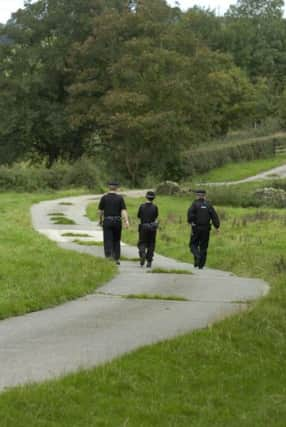Comment: Police training to beat sheep thefts


With plenty of grass on offer, Yorkshire is a good place to produce quality sheep – so much so that they are now an integral part of our farming systems, producing meat, milk, wool and skins. They are also crucial in managing our spectacular local landscape.
Generations of farmers have devoted their lives to developing their breeding flocks; many of them ‘hefted’ flocks that have gained an intimate knowledge of their home farm over many generations. So when sheep are stolen, the impact can be devastating.
Advertisement
Hide AdAdvertisement
Hide AdSadly we are seeing too many being taken, leading to real concerns not just about the impact on Yorkshire’s farming businesses but also about the illegal slaughter of sheep, and the potential for the meat to enter the food chain.
It is in response to the continuing theft of sheep - sometimes in large numbers - that we are now developing a close working partnership with North Yorkshire Police and other government agencies to tackle the problem head-on.
Our initiative builds on the success of a project in Lancashire that has led to a fall in thefts. That is good news for farmers in the patch, but there is concern that the thieves are now targeting other areas in the North of England. This is another reason why we are now working with our police force, starting in the Yorkshire Dales, to develop a programme of on-farm training for rural police officers. The aim is to offer the expertise of the farming community to the police; after all, it is a fine art identifying sheep that all look very similar!
Farmers have the knack and can interpret the variety of horn burns, flock marks, ear notches and management tags. They also know about other ways of identifying animals including DNA samples and electronic ear tags or boluses (chipped devices inserted into the animal’s stomach).
Advertisement
Hide AdAdvertisement
Hide AdMovement records are another complexity that farmers can help unravel and all this expertise can be passed on to the police to help officers on patrol.
The aim of the initiative is to raise awareness of sheep thefts across the police force, and help officers improve their roadside investigation skills. A set of standard questions will be developed for all officers on patrol who may stop check animal movements. These are all simple tools that will help an officer make an informed judgement on whether a trailer load of sheep has been stolen and where they have come from.
The initiative also involves developing a network of farmers to be on hand as local experts to assist the police in identifying stolen sheep or to provide longer term housing for sheep that can’t immediately be returned to their owners. Auction marts also have a role to play, with some providing overnight accommodation for sheep that have been seized and where investigations are pending.
This is a great example of farmers working with the police. Hopefully it will encourage better reporting of sheep thefts and rural crime as it will give farmers confidence that action is being taken.
Advertisement
Hide AdAdvertisement
Hide AdSo, if this summer you see a police officer armed with some sheep tags and a stick reader instead of a baton, you will now realise that they are not helping out a local farmer but are on the trail of stolen sheep.
Laurie Norris is the North Riding and Durham County Adviser with the NFU.